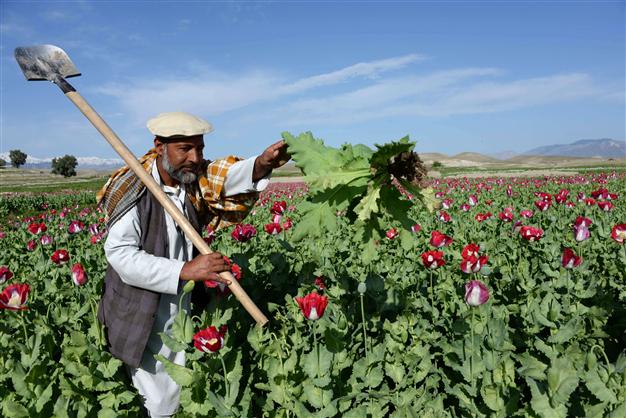After more than one decade of war in the country, the government and its allies from the US and elsewhere have had little success staunching the flow of poppy. According to recent data from the UN office on Drugs and Crime, opium-poppy cultivation in Afghanistan rose 10 percent in 2016, reaching an estimated 201,000 hectares, or about 496,000 acres. There are some factors that have played significant role into the uptick in cultivation, like widespread insecurity and ineffective government oversight. Poppy cultivation is at large across the country, especially in those provinces under insurgents’ control. Taliban insurgents are using poppy as their key income to continue their evil designs in the country. Though some regional players are financing Taliban, but it is also important to understand that we would have no victory over the insurgency unless narcotics are brought into the war agenda. Our country is the world’s top producer of opium, producing over 80 percent of global supply. This has to be halted. Every step toward poppy elimination has to be adopted by the government. Some estimation showed that opium trade results in the generation of approximately $68 billion in annual revenue. In 2016, opium production increased by 43 percent mainly due to insecurity. It also showed that 2.9 million Afghans are involved in opium production one way or another. It is a serious threat. A comprehensive fight against this menace is the need of the hour. All energy has to be laid in the table in fight against poppy, more reluctance would trigger more youths in this deadly business. Insecurity is the focal point toward increase of poppy. Security uncertainty has resulted into a widespread cultivation of poppy crop in northern Baghlan province. Illegal crop had been growing in five districts of the province, registering a two-fold increase compared to last years. It has reported that in the past years, cultivation of poppy had been considerable low in Banu, De Salah, Pul-i-Hesar, Talaf-w-Barfak and Barak districts as it barely reached 200 hectares; but this year farmers have grown the crop on 800 hectares of land to the five districts. Noting this, it is urgent for the government to send reinforcement not only in Baghlan, but to all provinces to destroy poppy farmlands. After the formation of the National Unity Government, there were hopes that the NUG would fight narcotics, corruption and strengthen the rule of law. But, unfortunately, the year 2016 turned out to be a year of rising drug output in the country. With the failure of the government these hopes quickly dashed to the ground. Nevertheless, still there is time to kick off a large scale anti-poppy operation nationwide.

 Afghanistan Times
Afghanistan Times



